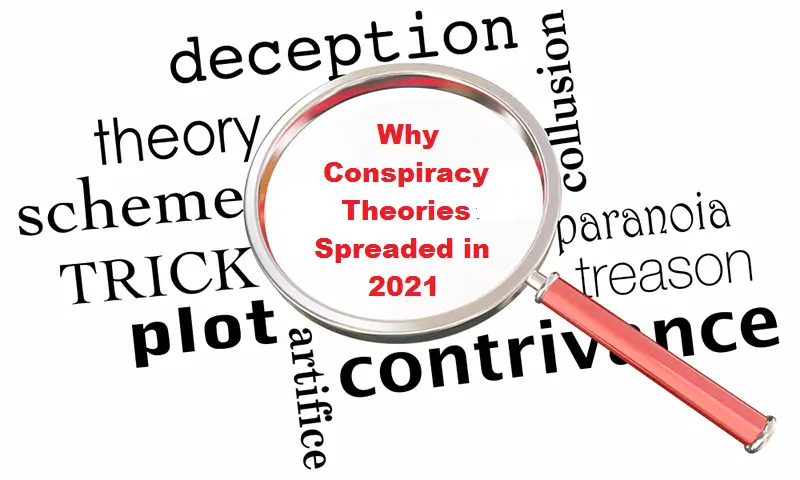Table of Contents
A Closer Look at the Ubiquity of Conspiracy Theories
In the year 2021, the United States witnessed an alarming surge in the popularity of conspiracy theories that extended their influence from the fringes of society to the highest echelons of power, even reaching the corridors of Congress.
This phenomenon was not entirely novel, as conspiracy theories have long been a part of American culture. However, their rapid dissemination and widespread acceptance have been greatly accelerated by the pervasive influence of social media platforms such as Facebook and Instagram.
Social Media: The Catalyst for Amplification
Cynthia Miller-Idriss, a distinguished sociology professor at American University specializing in extremism and radicalization, offers critical insights into the role of social media in facilitating the spread of conspiracy theories. The digital age has provided these theories with an unprecedented vehicle for dissemination.
The inherent nature of social media, with its capacity to amplify and circulate information at lightning speed, has proven to be fertile ground for the rapid propagation of misinformation.
Fear and Anxiety: Fertile Ground for Conspiracy Theories
The conditions of 2021, marked by the grim shadow of a pandemic that had claimed the lives of more than a million Americans, created a perfect storm for the flourishing of conspiracy theories. Miller-Idriss points out that individuals often turn to conspiracy theories when they grapple with a sense of powerlessness, fear, and anxiety.
These theories offer a comforting but simplistic narrative that provides a clear-cut answer to complex questions. “When people feel out of control,” notes Miller-Idriss, “they’re attracted to things that offer them an action path.” In an era where uncertainty prevails, conspiracy theories can serve as a psychological refuge, offering a semblance of control and comprehension in the face of an invisible and deadly adversary.
“Inexplicable Deaths” and Vulnerability
Miller-Idriss delves deeper into the psychology behind the rise of conspiracy theories, highlighting the role of “inexplicable deaths” as a catalyst for their emergence. Whether it’s the mass casualties caused by a global pandemic or the tragic loss of a beloved public figure like Princess Diana, such events can be so profoundly horrifying that people struggle to accept their stark reality.
This difficulty in grappling with the truth can make individuals more susceptible to embracing conspiracy theories as a means of coping. “When something is so horrifying,” Miller-Idriss observes, “it’s easier for people to believe it can’t be true.” In these moments of vulnerability, conspiracy theories offer an alternative narrative that allows individuals to distance themselves from the harsh realities of life.
The Historical Context of Government Deception
The skepticism and mistrust of the U.S. government are deeply rooted in the nation’s history, and these sentiments have been further fueled by a series of historical events characterized by government deception.
Instances of government involvement in controversial medical experiments, covert surveillance and torture programs, and the dubious claims surrounding weapons of mass destruction in Iraq have left an indelible mark on the collective consciousness. It is within this context of governmental duplicity that suspicions arise, prompting citizens to question the veracity of official narratives.
The Fine Line Between Skepticism and Conspiracy
While skepticism and critical thinking are vital tools for holding governments accountable, they can sometimes evolve into more elaborate and outlandish conspiracy beliefs. Often, these beliefs align with an individual’s preexisting political leanings or ideological convictions. The interplay between skepticism and conspiracy thinking underscores the complexity of the landscape, where healthy skepticism can morph into something far more fanciful and implausible.
As the director of American University’s Polarization and Extremism Research & Innovation Lab, Cynthia Miller-Idriss has delved into effective strategies for countering the influence of major conspiracy theories. One such strategy is “attitudinal inoculation,” a process that seeks to educate individuals about the inner workings of propaganda, misinformation, and conspiracy theories.
By imparting a comprehensive understanding of how these deceptive narratives operate, individuals can develop a robust resistance to dubious claims emanating from questionable sources. This approach empowers individuals to approach such information with a discerning and skeptical mindset, fostering a more informed and resilient society.
In conclusion, the proliferation of conspiracy theories in 2021 represents a multifaceted and evolving challenge. The convergence of fear, uncertainty, historical mistrust, and the digital age has paved the way for these theories to thrive. Understanding the psychological underpinnings and employing educational strategies like attitudinal inoculation are pivotal steps in addressing the growing influence of conspiracy theories in contemporary society.
You might also read:

